Destination: North Korea
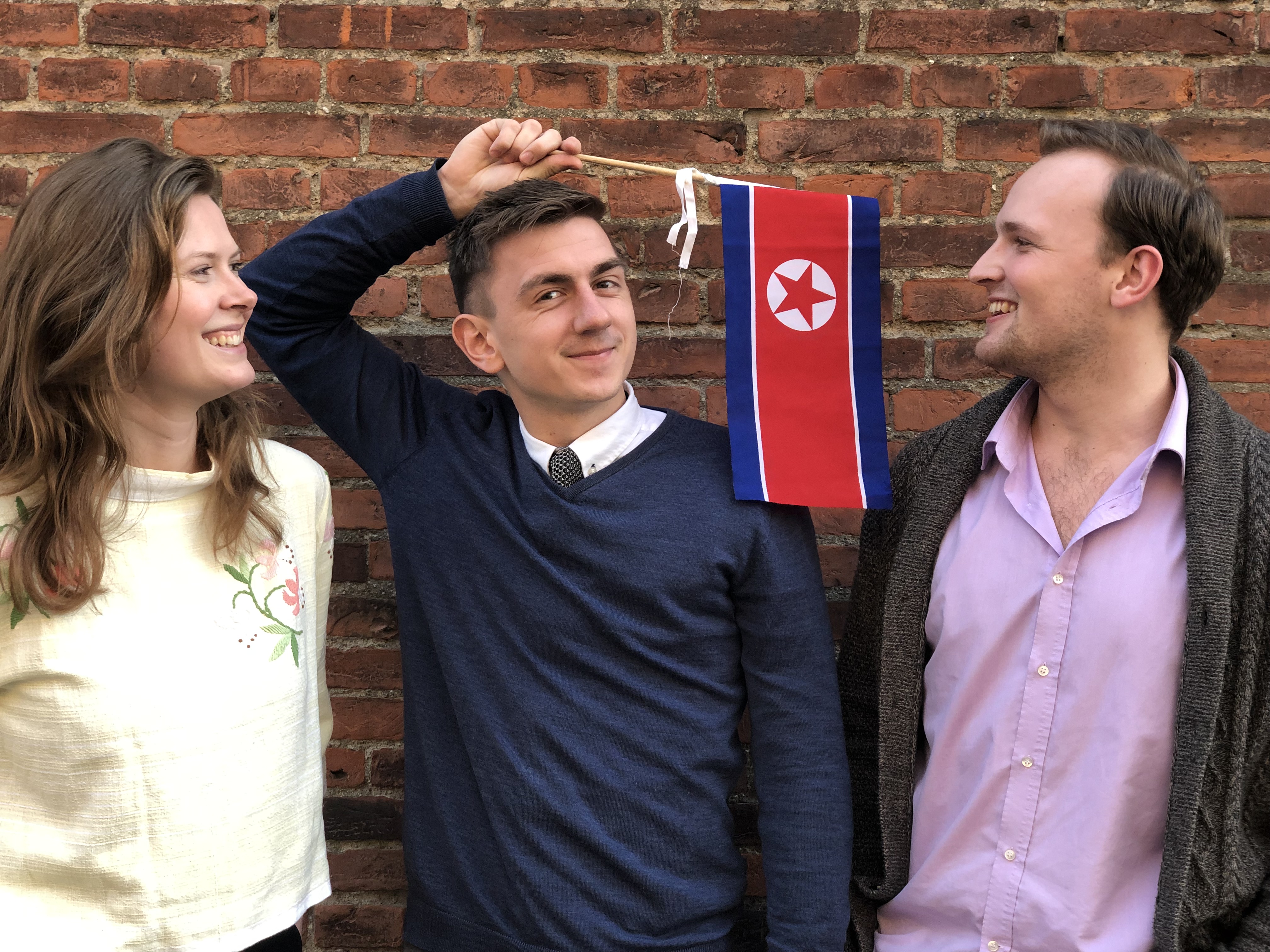
Three globetrotters make up a new CBS-founded travel agency, Above Borders, offering destinations in North Korea. (Photo: Mette Koors)
Three globetrotters make up a new CBS-founded travel agency, Above Borders, offering destinations in North Korea. They want to show travelers new insights into the world’s most isolated countries. But why North Korea? Isn’t that dangerous? And which country is next on their list? Our student writer, Andreas Boers, sat down with Above Borders for a round of rapid-fire questioning.
Are you getting a little tired of just running the Copenhagen Marathon? Tired of going to places others have been before? Are you amazed by the wonders of the Far East, and are you looking to explore parts of the world you previously thought you would only hear about in the media?
A resounding YES! goes through the corner of CSE that serves as office space for Jonas Bang-Andersen, E-business, Nanna Konge, User Experience ITU, and Gustav Trampe, Business Language Culture.
The three CBS students have created Above Borders, which resides at CSE in Porcelænshaven. Its purpose is to show people that North Korea is more than just Kim Jong-un, military parades and brainwashed citizens. Their goal is to create awareness and give their customers new insights into the world’s most isolated countries.
In April this year, 18 Danes will participate in the 2019 Pyongyang Marathon. Later in 2019, there will be summer trips, fall season trips and New Year’s Eve trips, where it’s possible to celebrate at Kim Jong-il Square along with 50,000 North Koreans.
Two members of the team, Jonas Bang-Andersen and Nanna Konge, met when they were doing their exchange program at Hanyang University in South Korea. And Gustav Trampe met Jonas Bang-Andersen when he inquired about a trip to North Korea.

Tell us about your very first meeting with North Korea.
Jonas: I had this idea that everyone in North Korea would walk in military formation, which obviously turned out to be completely wrong. There are plenty of people who just go to work and do their job every day or sit in the park and have lunch with their families.
Gustav: Initially you’re nervous, full of all this prejudice, and you don’t know if people are there to keep an eye on you or if they’re just being polite. With time I’ve become confident that they’re just regular people.
Nanna: And that’s what’s so important about making these trips, to dispel these myths, these preconceived ideas of who the North Koreans are.
What is the ultimate trip to North Korea according to you?
Gustav: I’d love to go to the east coast. There are amazing beaches and waves worth surfing on. A couple of days at the ski resort as part of a trip would also be fun. It’s wild to imagine going to a country like North Korea on a chartered vacation as we know it. It seems impossible, based on what you’d normally think about North Korea, and would be in contrast to the trips we’ve been creating so far.
Nanna: What I can’t wait to see for myself is the contrast between the modern architecture, and the old city in Kaesong. But most exciting is the thought of getting to actually interact with some of these people, and establish contact with them.

You only get to see selected parts of North Korea, only the facade – isn’t that a problem?
Nanna: The only way to travel in North Korea is with a guide, which is why what you get to see has already been planned ahead. But I can’t wait to experience the country, and it’s just a prerequisite to travel with a local guide. I have no doubt it’s going to be an incredible experience no matter what.
Jonas: But in fact, on our first trip to North Korea, Gustav and I started without a guide on a train ride from China, where North Korean businessmen were returning from business trips. One of them was an English speaker. At first, he was a little reluctant, but when he was offered a beer and a chat, he was open and told us about his work, his family, his kids’ schooling and so on.
Isn’t there a big risk in going to North Korea? Especially after recent events where a young American lost his life upon returning from imprisonment?
Jonas: Historically speaking, the United States and North Korea have always had a tense relationship. At least this was the case until 2018 when the meeting between Donald Trump and Kim Jong-un softened the tension. But it’s because of the nature of the relationship between the two countries that we don’t allow Americans on our trips.
Of course, the case with the young American, Otto Warmbier was horrible. He entered a restricted area and tried to steal. It was ‘just’ a poster, but that’s still stealing. Stealing is illegal in North Korea, just like in most other countries. The consequences and the degree of punishment can always be discussed, but frankly that’s based on the laws of the country in question.
What happened in the 500 days that Warmbier spent in North Korea until his return, is a huge mystery. Some believe he was in a prison camp. Others believe he was held captive at the hotel where other tourists stayed. His cause of death was even uncertain upon his return to the United States.
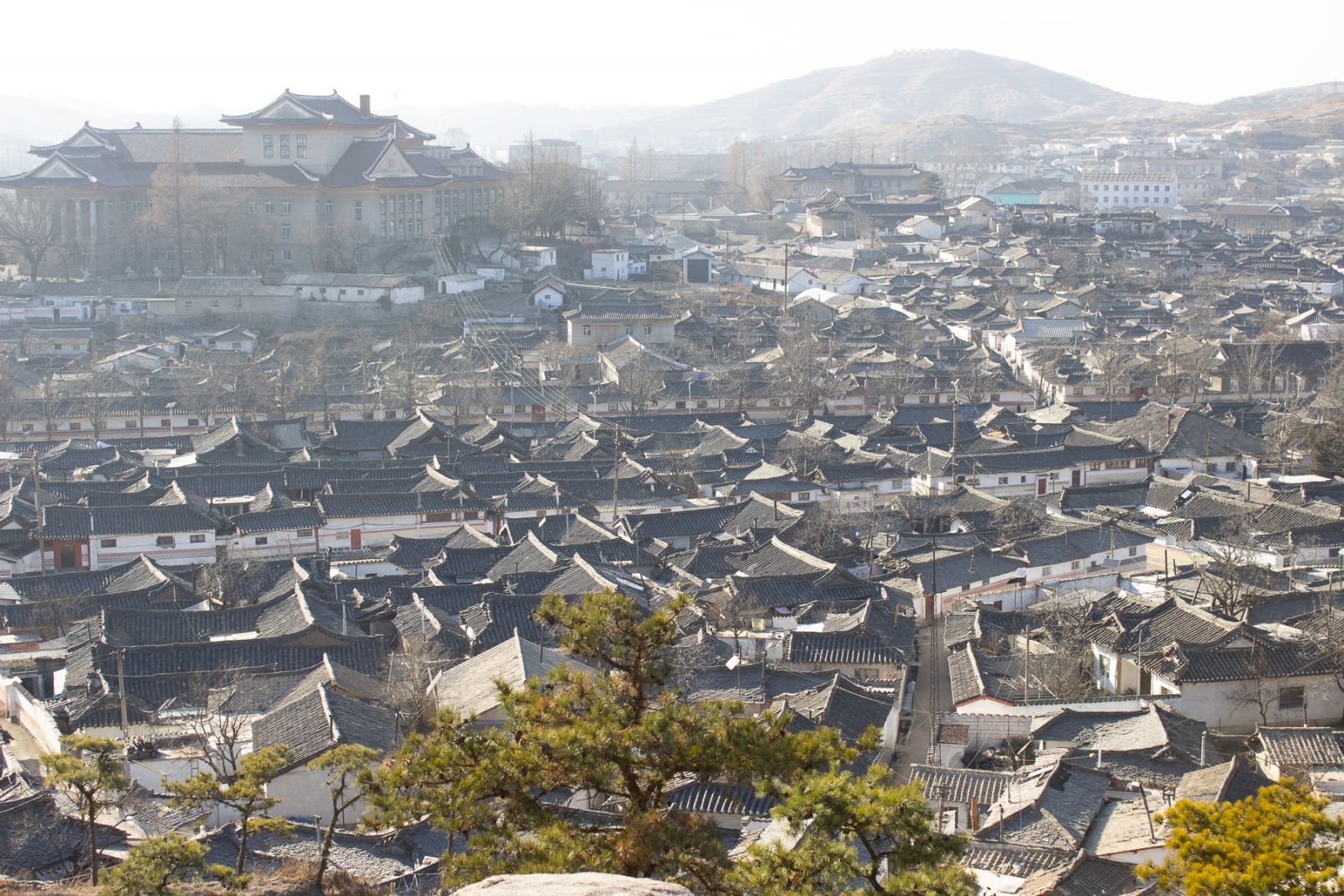
What would you do if one of ‘your’ travelers were arrested and imprisoned for insulting the country or its great leader? Maybe the traveler didn’t even know that he/she was conducting an illegal act – what then?
Jonas: The point is that we take the utmost precautions no matter where we go in the world. We actually believe that it is a duty to examine the laws, rules, customs and culture of the country you’re traveling to.
When people travel with us, this is what we do for them, so they’re guaranteed to have all the necessary and relevant information when traveling to a new country. They’re constantly reminded, both before the trip and during the trip, by us and our local North Korean guides, which is why there have never been issues on any of our trips.
Should the improbable happen, and one of our guests breaks the law, it won’t be because he/she didn’t know the law. Naturally we take responsibility for our travelers, and we constantly evaluate the safety of our destinations.
That being said, it’s impossible to guarantee that nothing will happen. That’s impossible on any trip. You could sit on a train in Denmark and be involved in an accident. Our guarantee is that every imaginable precaution has been taken.
Aren’t you just supporting the ‘Great Leader’ and the suppressive regime when you make these tours?
Nanna: We’ve debated this so many times, but we keep coming back to the fact that it’s vital to travel and be exposed to new cultures. North Korea is a very unique nation, and you can choose to view it as something you’re best staying far away from, or you can try to find out more about the country, and understand their culture.
We know it doesn’t happen overnight, and that it takes many small steps. But we believe that our trips can be one of those tiny steps in the right direction. We see it as a necessity to build bridges across cultures in this globalized world. South Korea is establishing more and more industry in the southern parts of North Korea, another example of these small steps toward peace.

Have you never felt uncomfortable or unsafe in North Korea?
Gustav: I remember an episode where I felt a little on edge. We were sitting at tables in the demilitarized zone, on the border between North Korea and South Korea, and took out a set of UNO cards. We wanted a fun photo of us playing UNO in a place that is otherwise known for serious political and military negotiation.
Everything went great, and at one point a soldier, who was probably just curious, asked me about my opinion on the relationship between Kim Jong-un and Donald Trump, to which I gave the most politically diplomatic answer I have ever given.
You feel so obliged to not step on anyone’s toes, and when a military figure with a loaded weapon asks you a question, you’re tempted to refer to Kim Jong-un as the Great Leader. But at the end of the day, they don’t expect you to act in a certain way. They expect you to act like a normal person, just like they do.
Jonas: That same soldier greeted me the next time I went there, so you probably didn’t say anything wrong, Gustav. I think there’s a big difference between misbehaving and just playing UNO.
And should you ever accidentally take a photo of something you’re not supposed to take a photo of, the guide will just kindly ask you to delete the picture, and of course you just will. I imagine that if someone said ‘No, I won’t delete it’, they’ll just have their camera taken away from them.
Nanna: And that’s what all of my own experiences with military figures are like in foreign countries. Don’t take any pictures you’re not supposed to, and just generally behave the way you know you’re supposed to.
Just earlier today we were talking about that general idea of being careful about not taking too many risks in life. But there are so many risks that you take every day. Anything can kill you. Lying on your couch all day long will kill you. So we just really urge people to go out and explore this world, and that’s our mission at Above Borders – we want to just say ‘Go and see the world. There’s so much of it and it’s so majestic’. It’s important not to be controlled by your fear.
How do you handle sustainability issues? Long flights and pollution go hand in hand.
Nanna: This is another topic we’ve discussed heavily amongst ourselves. We reached the consensus that there are a lot of things that are important in the world today – pollution being one of them. But we believe that educating each other and ourselves by discovering our world is just as important. Those experiences are vital.
It’s not a vacation to a sunny destination, it’s education. Our tours begin in China and we enter North Korea by train. So it’s actually up to the individual tour member to figure out how to get to China.

Is it just North Korea, or do you have other countries and destinations in mind?
Jonas: Even though Above Borders is based on trips to North Korea, we do have other destinations in mind. Jonas is getting ready to leave for Russia. And Syria, Afghanistan, Iran, Kazakhstan and Bhutan are all countries of interest. But we’re very focused on only exposing travelers to safe environments, which is why some of the destinations are still only in the initial stages of research.
In March, you will go on a research trip to Turkmenistan, which you hope will be your next destination offered to customers. Why Turkmenistan?
Jonas: This is a country that’s even more isolated than North Korea. It’s a highly censored republic in Central Asia. We hope that Turkmenistan will be ready to show her culture to the world.
We’ve already established contact with some potential partners who can help us make the perfect trip. That’s what these research trips are all about, just going there to see if it can actually develop into a trip that we can offer. Because it’s not really something you can do by yourself.
Gustav: And that’s what Above Borders is really all about, where we find our competitive advantage, because we do something that you can’t do yourself. The fact that we’re an agency looking to develop a trip, that can be somewhat regulated by locals, makes it better and safer.
Nanna: And then we’re just crazy about the idea of traveling to all these remote locations ourselves. It’s great that we get to share that.

Why did you start Above Borders?
Jonas: I started the agency after my first semester at CBS, and I had my first meeting with CSE shortly after. They had office space that I could use for three months, and they could help out with lawyers, insurance, accounting and consulting.
And after those three months they said, ‘Hey, we’d like you to continue here while you do your internship with Above Borders’, at which point I was in contact with Nanna and Gustav who were interested in starting this travel agency.
We now have a permanent space at CSE, and it’s a great place to meet like-minded students and entrepreneurs who are doing their own interesting projects. One of our neighbor entrepreneurs is actually going with us on the marathon trip.
What would you say to someone who has come up with what seems to be an odd idea, but one that just might work?
Jonas: Just do something. It’s great to talk to someone. If you don’t know who, CSE is always a great place to start. They have resources, but most importantly they have people. The business developers at CSE can offer alternative perspectives on ideas from the very start.
One of the first questions I was asked at CSE was ‘How many trips do you need to make per year for this to be the only thing you do for a living?’ and I had no clue. But that put things into a bigger perspective.
I also think it’s important to test things out on a smaller scale first. I had this idea about making a business out of trips to North Korea, but the first step was just me asking people I knew if they’d be interested in joining.
Then, when I managed to count around ten people who were interested, I was like ‘Okay, we can make a trip out of this and find out if they like what they see’. That turned out to be a great way to start.
Nanna: I’d also say just go for it. Give your idea the chance to come alive. We’ve always wanted to develop content on digital platforms, so that’s what’s next: podcasts, videos and articles that go into more detail.
Jonas: I have tons of footage from North Korea that I can’t wait to share with everyone. There’s actually already a video on our YouTube channel of a 100,000 people performing at the Mass Games, the biggest performance in the world.
I’d also like to add that you should find people you enjoy spending time with, and are fun to work with. It’s so much more fun with Nanna and Gustav than it was when I was doing this alone.
So, if you’re sitting out there with a crazy idea and you have no idea what to do with it, do something!
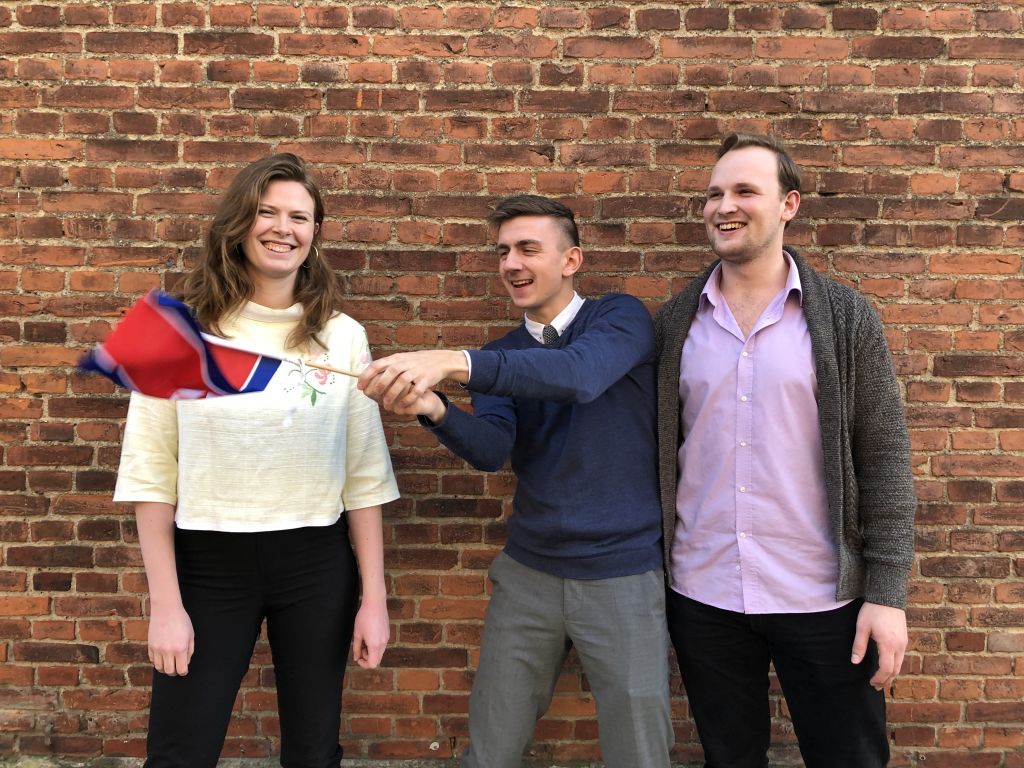
(Photo: Mette Koors)
You can find more information at aboveborders.dk



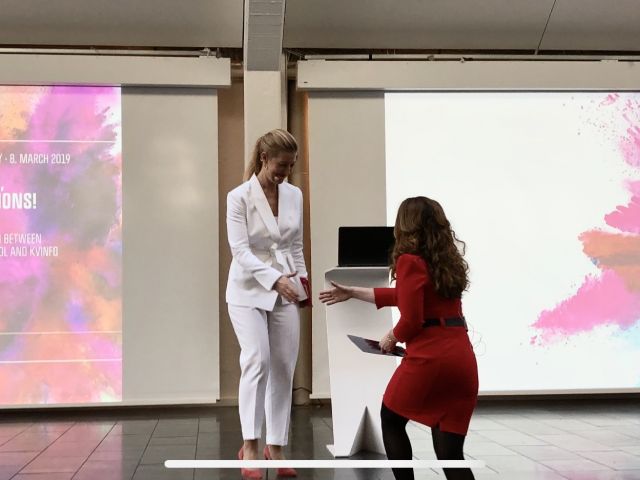
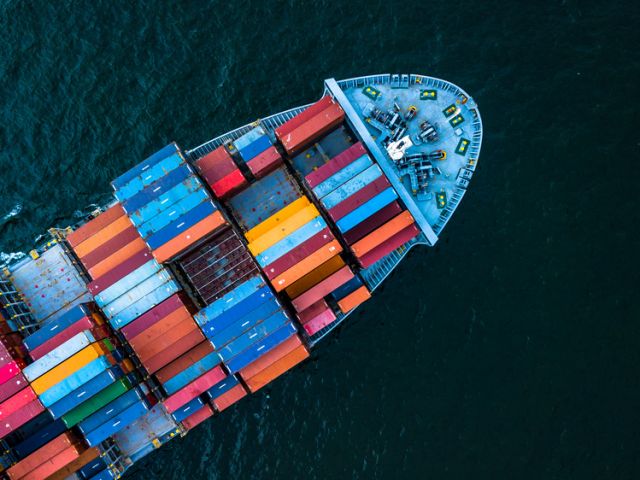




























































































































Comments